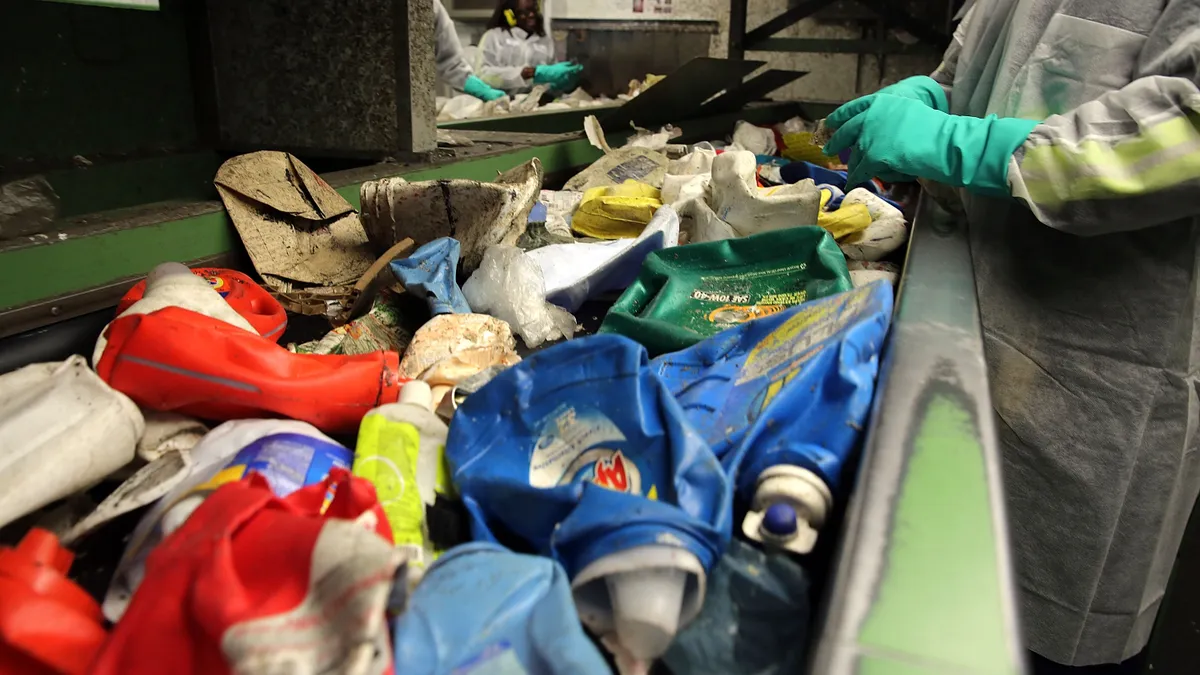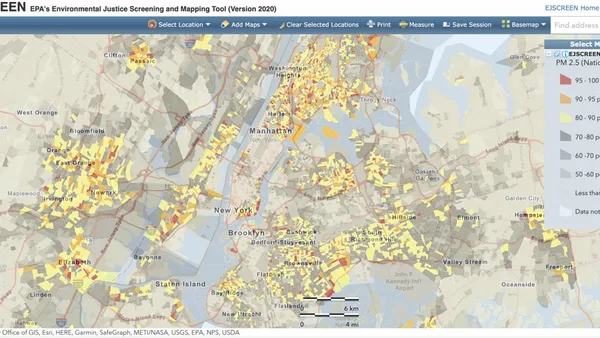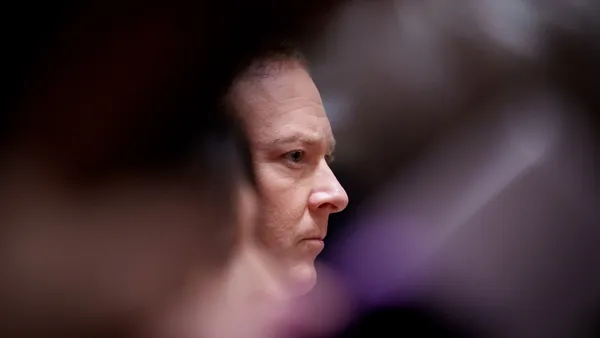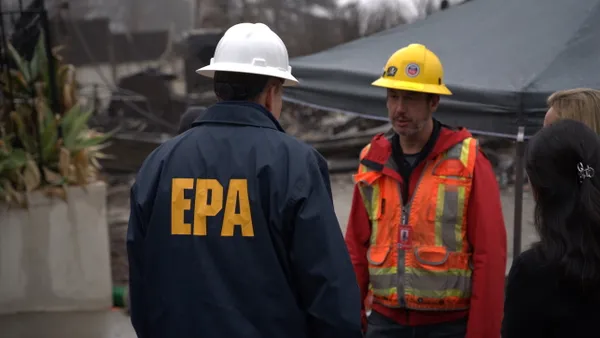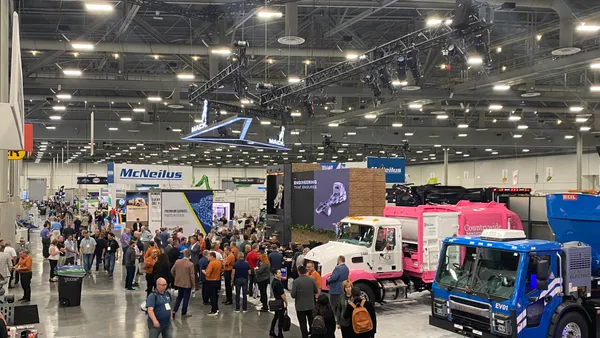Major brands in the U.S. Plastics Pact with commitments to reducing virgin plastic and using more recycled materials say “harmonized” federal legislation and more support from government entities could help speed up the pact’s goal to make all plastic packaging 100% reusable, recyclable or compostable by 2025.
During a webinar on Wednesday hosted by the U.S. Plastics Pact, representatives from Mars and Keurig Dr Pepper, two pact members, said they’re working toward ambitious 2025 goals amid market conditions that will not be able to support demand.
Commitments by brands to infuse their packaging with higher levels of recycled materials are seen as a major market driver for the U.S. recycling industry, even as experts say the country’s infrastructure and collection rates must improve to support that market. The current recycling rate for plastic packaging is 13% in the U.S., said Emily Tipaldo, executive director of the U.S. Plastics Pact.
The pact, made up of 117 organizations and businesses known as “activators,” seeks to recycle or compost 50% of plastic packaging by 2025, and intends to ensure packaging has at least 30% recycled or bio-based content. The pact formed in 2020 and is part of a worldwide network led by the Ellen MacArthur Foundation.
Jennifer Amundsen, director of government affairs for Keurig Dr Pepper, said the company has reached a 24% recycled content rate for packaging and is confident it will get to the 30% rate by 2025. It is also working toward reducing virgin plastic use by 20% by 2025, but so far has only been able to reduce it by 6%.
As brands look for more sources of recycled resin for packaging, they are also working to redesign packaging to use less plastic in the first place, said Rachel Goldstein, North America public policy director of Mars. The company is in the process of redesigning about 12,000 of its packaging components — about half its portfolio — and says it has reduced its plastic use by 98 tons from eliminating plastic overwrap on items like M&M’s candies.
Both Goldstein and Amundsen said U.S. policy changes could make it easier and faster for brands to reduce reliance on virgin plastic.
One supply chain issue is the growing demand for resins allowed for food-contact applications, which must meet U.S. Food and Drug Administration standards. Goldstein said a “sharp increase” in plastic producers seeking such approval can lead to backups at the FDA. Processing these quickly will be a key to infusing the market with more postconsumer resin approved for food packaging, she said.
Tipaldo said the industry is also eagerly anticipating the Federal Trade Commission’s work on updating the “Green Guides,” which could shed light on the ongoing debate over what materials should be considered recyclable. “So much has changed since those were put out” in 2012, she said. “The economy is so much different and the material flows are different.”
In years past, many major brands were reluctant to support EPR policies, but both Amundsen and Goldstein said their companies now consider EPR a major force in investing in a stronger supply chain for recycled content.
California, Colorado, Maine and Oregon have already passed EPR for packaging policies, but each of those states have slightly different rules and regulations. Amundsen said brands need a “harmonized” system where regulations and responsibilities are the same across the country. Amundsen also supports the move toward a national bottle bill under certain conditions, especially if such legislation is paired with a “comprehensive” EPR program.
Federal policy may play an important role in driving consistency and clarity. The federal Recycling and Composting Accountability Act, which passed the Senate in July, would direct the U.S. EPA to more formally collect numerous types of recycling and composting data.
“This could be a step forward in creating a kind of a common understanding of a waste management infrastructure that's highly fragmented at this point,” Amundsen said.
Meanwhile, the Recycling Infrastructure and Accessibility Act, also passed in the Senate in July, aims to create an infrastructure grant program meant to make recycling more accessible to rural and disadvantaged communities, further boosting important recycling streams.



